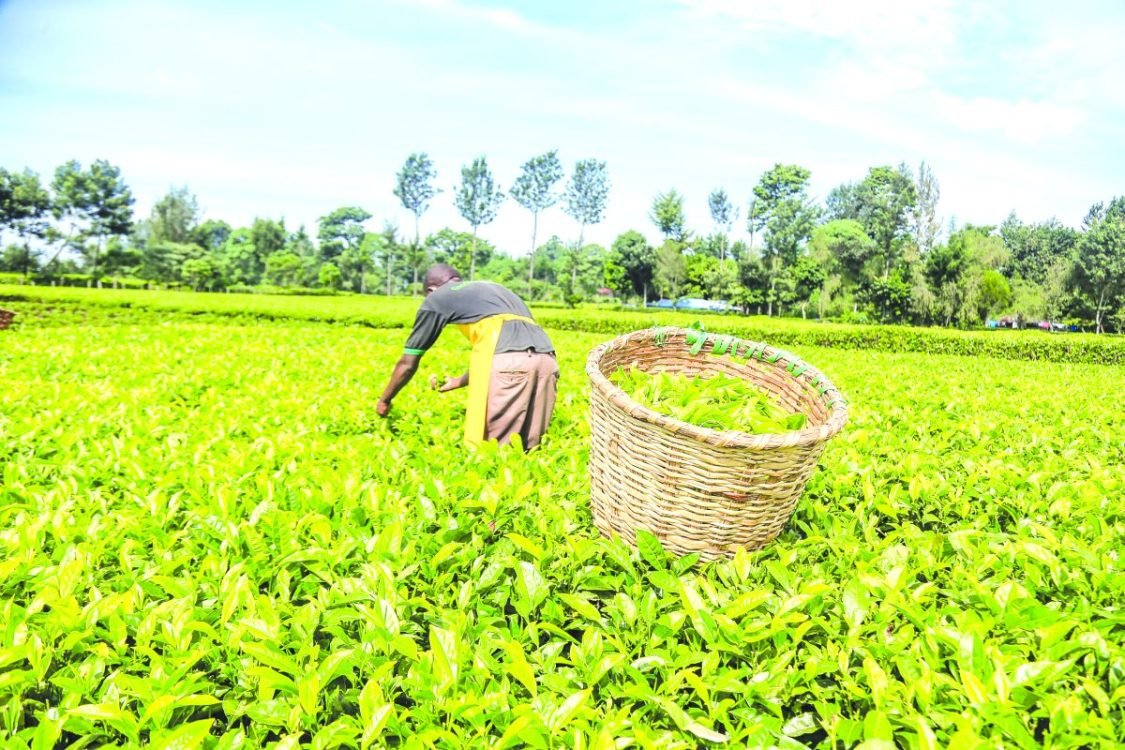How to help tea farmers raise output, earnings

With its ideal climate, strategic location on the equator and fertile soils, Kenya is among the leading players in the global tea market. It cultivates about 160,000 hectares of tea, producing around 350 metric tonnes annually. With this, it has established itself as one of the top tea producers worldwide, second only to China. Kenya’s tea industry is a vital and lucrative sector, contributing about 33 percent to GDP from exports.
The tea industry directly and indirectly employs roughly five million people, with about 650,000 dependent on it as their primary source of income. Despite Kenya’s reliance on crucial overseas exports, smallholder tea growers, who account for the vast majority of production, have not always benefited. The sector has had issues, prompting many farmers to uproot their tea bushes to pursue other commercial crops or enter the real estate market. This should worry the government. But is the problem with the tea itself or with the industry’s systems? Is it not amusing that farmers are uprooting tea but Kenya is still one of the world’s greatest tea producers?
A spot check with tea farmers on their bandas revealed numerous frustrations. The rising cost of labour, fertilisers, and other inputs poses a significant challenge for smallholder farmers
Some are transitioning to other agricultural activities to mitigate the financial losses. Others are exploring value-added opportunities, such as processing and selling tea products directly from their farms to consumers.
The government should intervene to address this pressing issue and provide support to ensure that the tea industry is sustainable.
One possible solution to help smallholder farmers cope with the rising costs is for the government to provide subsidies or financial assistance. By offering support as grants or low-interest loans, farmers can access the resources they need to continue operating their tea farms. The government should invest in research and development to find more cost-effective farming methods and technologies without damaging the labour force.
Continuous provision of training and education programmes is vital. Equipping farmers with the knowledge and skills to improve their farming practices can increase their productivity and profitability. Workshops on sustainable farming techniques, crop diversification, and market access strategies are crucial for small-scale farmers. These will have a ripple effect on the local community and the economy. As farmers become more efficient and successful in their practices, they can generate more income, which can be reinvested in their businesses or spent in the local market. This increased economic activity can create job opportunities, stimulate growth in related industries, and ultimately improve the standard of living for the entire community.
Despite ongoing efforts to combat corruption in the leadership of the tea sector, including the introduction of new regulations such as guaranteed minimum returns and enhanced transparency measures, the fundamental issues contributing to corruption and inefficiency persist. Farmers are left grappling with dwindling profits and mounting debts, as middlemen and officials siphon off resources meant for them. The lack of accountability and oversight only exacerbates the situation, leaving farmers feeling helpless and marginalised. Without significant reforms and a commitment to ethical practices, devoid of politics, the future of the tea sector will remain uncertain.
The Kenyan government and tea industry stakeholders should collaborate to ensure fair compensation for smallholder farmers, promote sustainable practices, and address low prices, climate change, and competition. Kenya has the opportunity to enhance its status as a top tea producer and the well-being of individuals reliant on the industry by enacting measures that provide support to farmers and champion the adoption of sustainable agricultural practices.
This will help Kenya maintain its position as a top tea exporter, providing economic stability for farmers and communities. Investing in innovation and technology will help the industry adapt to changing market demands and ensure long-term sustainability.
The writer is an Innovations Evangelist and a PhD Candidate; machariamuhoho@gmail.com












